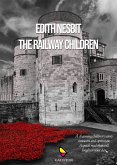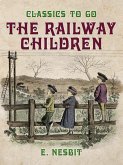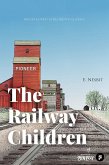In "The Railway Man and His Children," Mrs. Oliphant crafts a poignant narrative that intricately weaves familial bonds with the burgeoning influence of the railway in Victorian society. The novel offers a rich tapestry of character studies and social commentary, capturing the transformative impact of industrial progress on the lives of ordinary people. Oliphant's literary style is characterized by her keen observation, detailed descriptions, and an ability to convey the emotional landscapes of her characters, all set against the backdrop of a rapidly modernizing world. This exploration of the intersection between personal and societal change situates the work within the broader literary context of the time, reflecting a shift towards representing the complexities of domestic life in an era of upheaval. Mrs. Oliphant, a significant yet often overlooked figure in Victorian literature, was deeply influenced by the societal changes of her time, especially concerning gender roles and the effects of industrialization. Her own experiences as a widow and the challenges she faced in supporting her family undoubtedly shaped her portrayal of family dynamics in this novel. Her extensive body of work often delves into themes of social change, making her insights particularly resonant in this narrative. This novel is highly recommended for readers interested in the interplay of personal and societal transformations during the Victorian era. Oliphant's exploration of the impact of the railway on family life is not only historically significant but also timeless, inviting readers to contemplate the enduring consequences of technological advancement on human relationships.
Dieser Download kann aus rechtlichen Gründen nur mit Rechnungsadresse in A, B, BG, CY, CZ, D, DK, EW, E, FIN, F, GR, H, IRL, I, LT, L, LR, M, NL, PL, P, R, S, SLO, SK ausgeliefert werden.
Hinweis: Dieser Artikel kann nur an eine deutsche Lieferadresse ausgeliefert werden.









